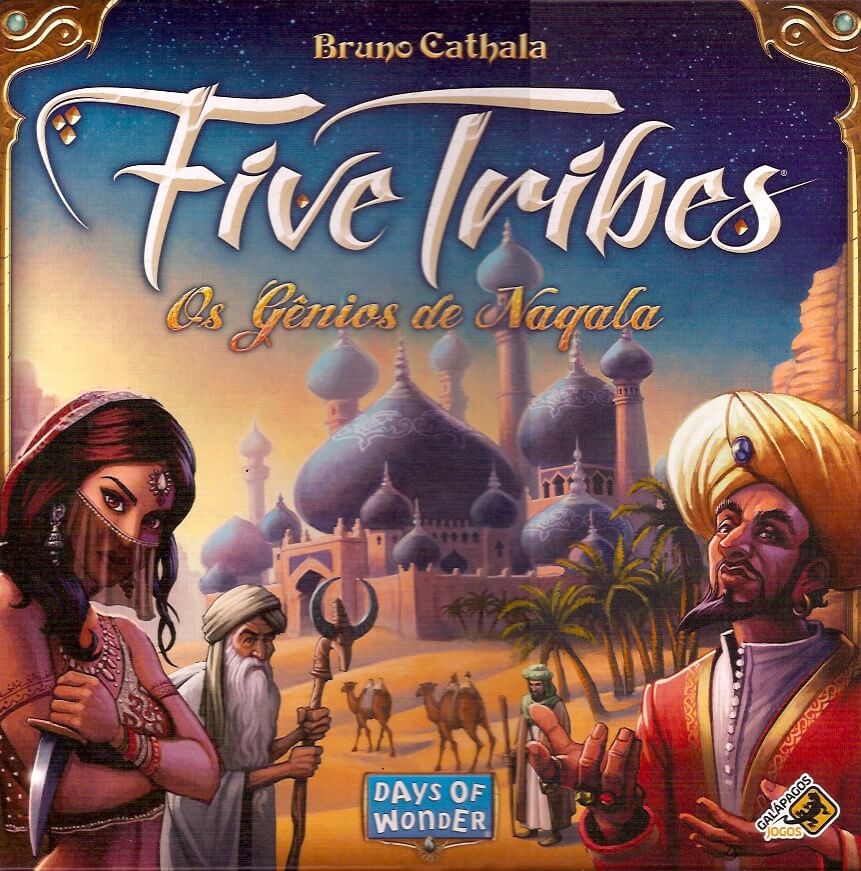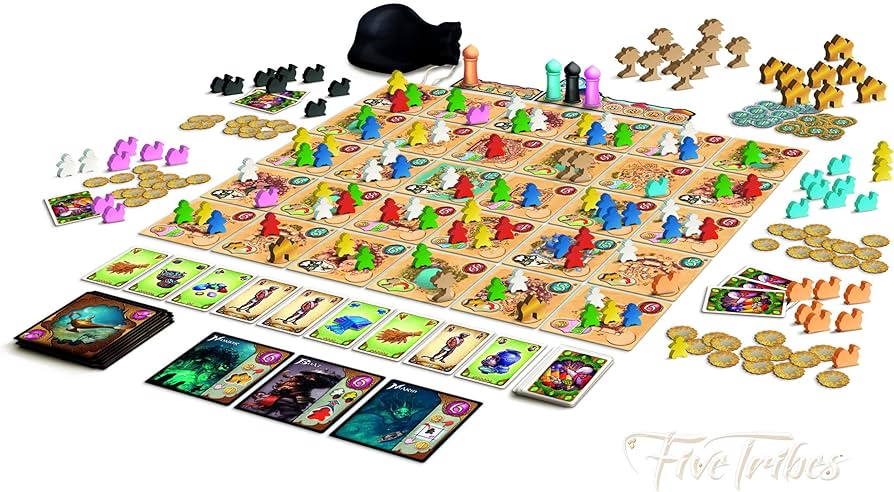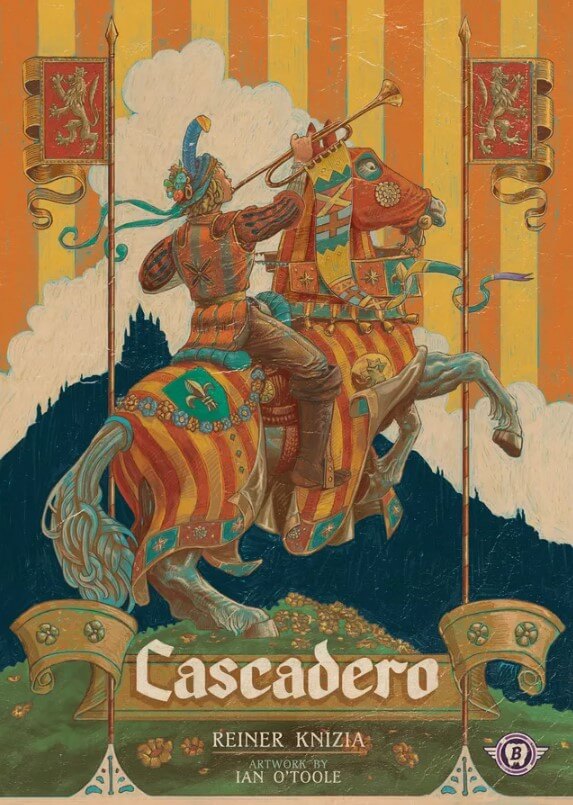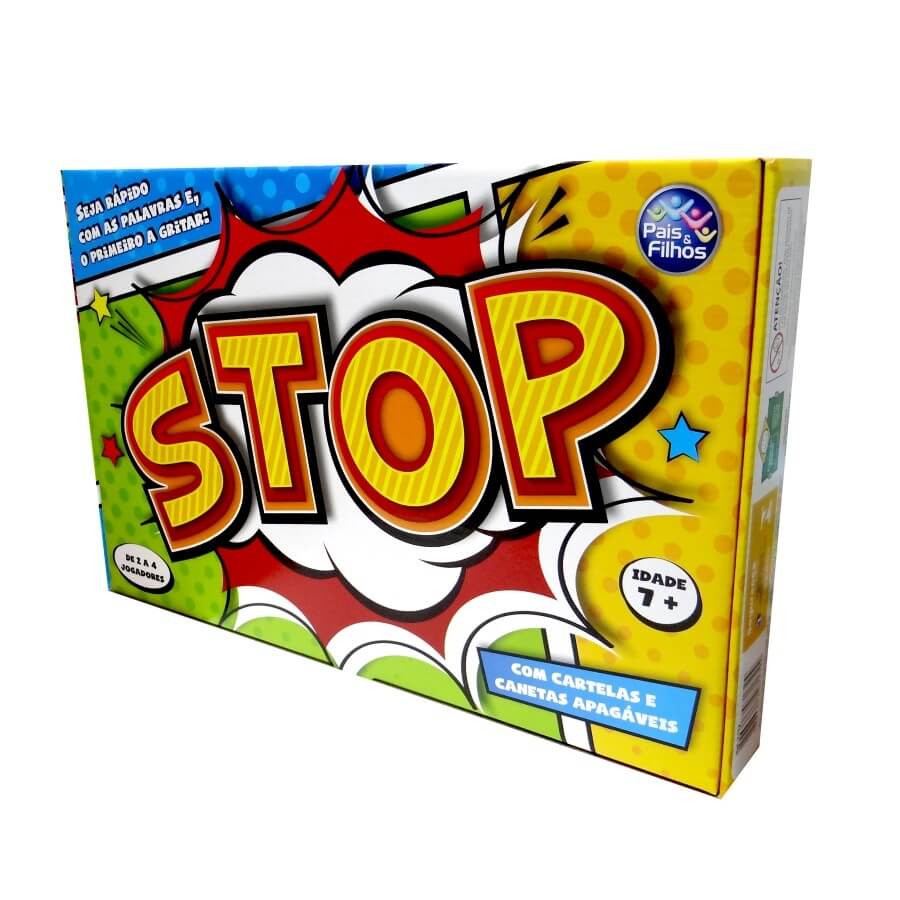
Five Tribes
In Five Tribes, you are a daring traveler who ventures into the mystical city-state of Naqala, where the eternal legacy of the Sultanate is at stake. After the death of the Sultan, the vacant power attracts outsiders who, like you, want to gain influence over the legendary land. With the help of the five tribes - Assassins, Sages, Builders, Merchants and Viziers - you must navigate a field of alliances and rivalries, shaping the destiny of this magical land. Created by Bruno Cathala, Five Tribes reinvents the concept of worker allocation by using meeples already arranged on the board. In a game that combines strategy and tactics, your mission is to cunningly move these tribes between villages, markets, oases and sacred sites. Each decision on where, how and when to move directly impacts your chance of domination. While the rules are accessible, the strategic depth will require you to think beyond the obvious, manipulating the tribes to create disadvantages for your opponents, while preparing to summon powerful Genies that will strengthen your position. Get ready for a game that demands both cunning and strategy, exploring a world rich in lore and challenges. Complexity: 2.85 / 5 (BGG 04/05/2023) ***************************************************************** Winner of the Ludopedia Game Expert of the Year Award 2018 - Popular Vote Nominated for the Ludopedia Game Expert of the Year Award 2018 *****************************************************************Artists: Clément Masson;
Designers: Bruno Cathala;
Date: 2014
Note: 8.7
Mechanics: End of game bonus, Collecting Sets, Grid with Squares, Players with Different Skills, Auction / Bidding, Auction: Restricted Bidding, Mancala, Shift order: Auction, Victory Points as a Resource, Hidden Victory Points, Variable preparation, Modular tray, Take that
Topics: Oriental Culture, Fantasy, Mythology
Table of Contents
- How to Play
- Tips for playing
- Game mechanics
- Game components
- Additional Information
OBJECTIVE OF THE GAME

Tips for playing
Here are some tips for doing better in the game Five Tribes:
- Prioritize Meeple Aladdin's color in the first few rounds to take advantage of special abilities and collect more genies.
- Use the merchants to exchange goods when there are only a few pieces left to complete valuable sets.
- Constantly evaluate the board to identify moves that many players might overlook.
- Conquering thieves can be crucial to eliminating important colored meeples from your opponents.
- Plan your moves as far in advance as possible to minimize other players' options.
- Use the genius cards with strategic planning, considering not only the points they give, but the skills that can offer future advantages.
- Never underestimate the value of resetting the initiative, especially as you approach the final rounds.
Video about the game
GAME mechanics
- Collecting Sets: Players acquire cards and tiles during the game that form part of collections. Completing specific sets of cards or tiles offers additional victory points, encouraging the strategy of looking for profitable combinations.
- Auction / Bidding: At the start of each round, players take part in an auction to determine the turn order. They use coins to place their bids, adding an important strategic layer to the game by balancing how much they are willing to spend to secure a desired position.
- Modular tray: The board is made up of several tiles representing the Sultanate of Naqala, and its configuration can be changed for each game. This guarantees variability and new strategies for each game, as the layout of the tiles influences the tactical possibilities.
- Players with Different Skills: Certain elements of the game allow players to obtain unique abilities or increase their influence, such as the use of Djinns, which grant varied and exclusive powers to their holders.
- Mancala: The main mechanic of the game, where players take all the tiles on a tile and distribute them one by one on adjacent tiles. The final piece determines the action the player can take. This mechanic requires planning to optimize moves.
- Auction: Restricted Bidding: During auction phases, players have limited options in what they can offer, and careful choices must be made so as not to spend resources unnecessarily or allow an opponent to gain an advantage.
- End of game bonus: At the end of the match, players receive additional points based on certain criteria, such as the amount of money they have accumulated or the presence of additional collectibles, which encourage long-term planning.
- Hidden Victory Points: During the game, each player's victory points may not be completely clear to opponents, as many are recorded secretly, introducing an element of uncertainty and strategy adjustment between players.
- Take that: Certain elements allow players to interfere directly with opponents' plans, such as blocking paths or capturing essential meeples, adding a dose of direct interaction and competition.
- Grid with Squares: The board is organized in a grid of squares where actions take place, allowing for a range of strategic moves and the need to adapt moves as the game situation evolves.
- Victory Points as a Resource: Coins and other elements that guarantee victory points also function as currency in the auction mechanics, challenging players to balance immediate use versus end-game accumulation.
- Variable preparation: The initial configuration of the game can vary, including the random distribution of pieces on the tiles, offering a different start to each game and forcing you to adapt your starting strategies.
- Shift order: Auction: At the start of each round, players choose their turn positions through an auction, where the turn order can be crucial for executing preferential strategies ahead of their opponents.
Game components
See all the items in the game below Five Tribes:
- 1 Fabric bag
- 12 Wooden palm trees
- 22 Letters from geniuses
- 10 Wooden palaces
- 30 Tiles (18 red and 12 blue)
- 2 sets of 11 camels and 2 shift markers
- 90 Meeples of the tribes (18 blue, 20 white, 18 green, 16 yellow, 18 red)
- 54 resource cards (36 goods and 18 fakirs)
- 1 Shift order marker
- 1 Final scoring block
- 96 gold coins (48 worth 5 and 48 worth 1)
- 2 sets of 8 camels and 1 shift marker
- 1 Auction order marker
- 5 Shift/Genius Summary Sheets
Additional Information
- Ludopedia link: https://ludopedia.com.br/jogo/five-tribes
- Link Tabletopia:
- Amazon Brazil link: Comprar Five Tribes
- Amazon USA link: Comprar Five Tribes


